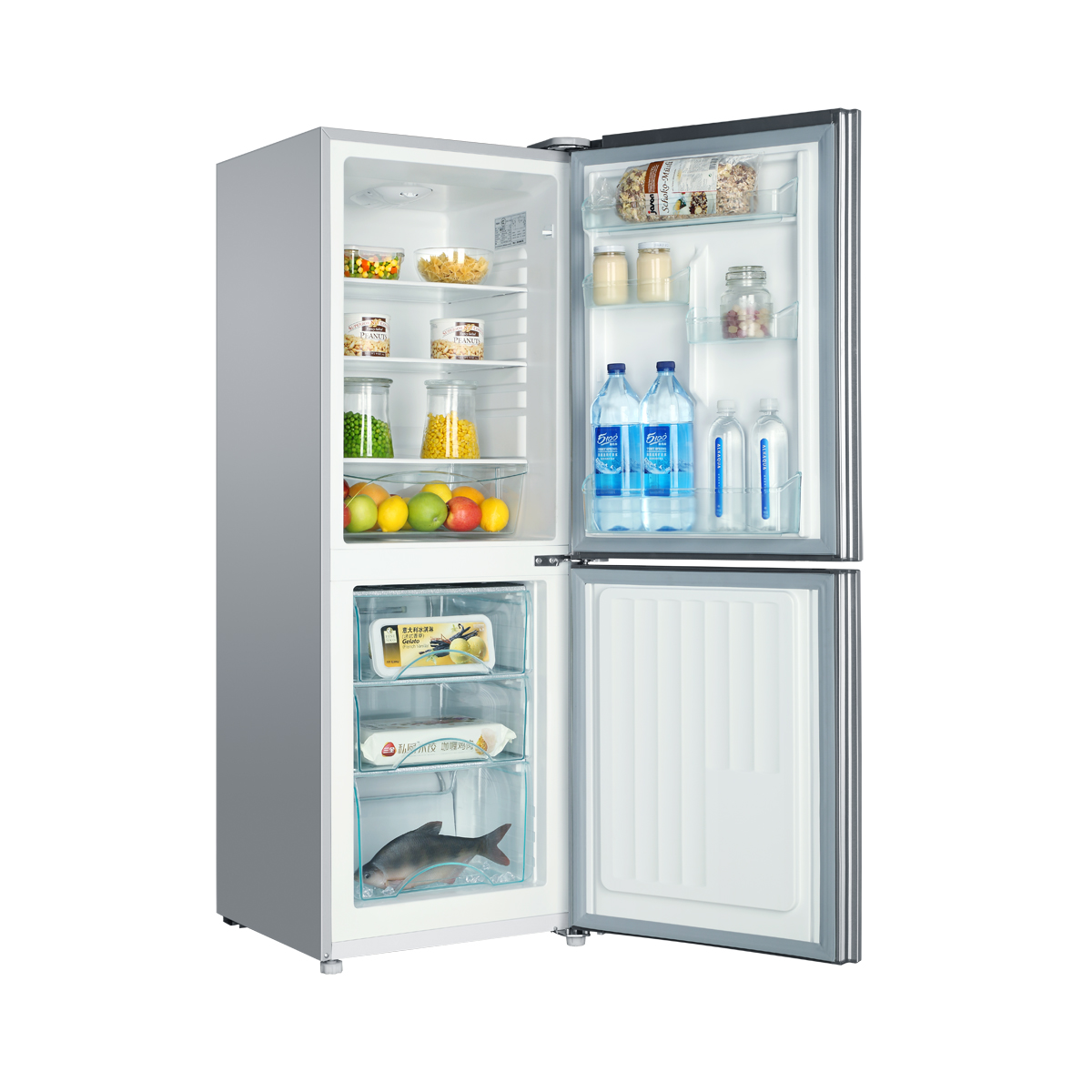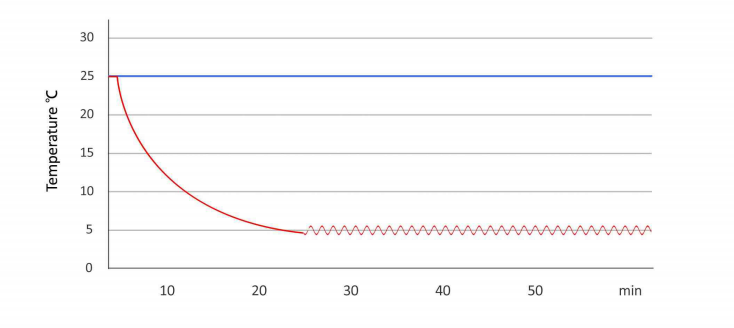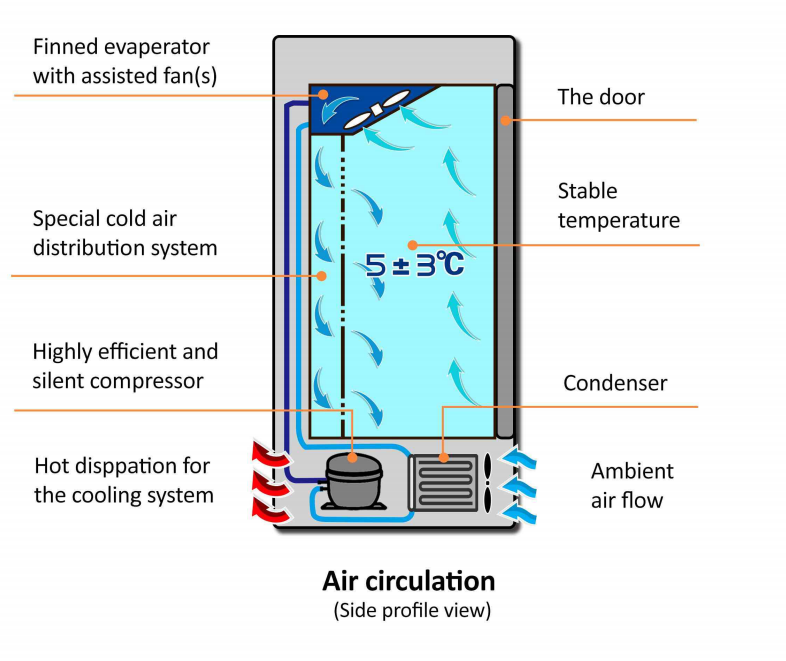When it comes to storing vaccines, maintaining the right temperature is crucial to preserving their efficacy. Selecting the appropriate vaccine refrigerator ensures that vaccines remain safe and effective. This guide will help you understand the types of vaccine refrigerators available and the key factors to consider when making your purchase.
Before diving into the types of refrigerators, it’s essential to understand the specific storage requirements for vaccines. Vaccines must be stored at precise temperatures to remain effective. This requires a stable and reliable cooling environment, making the choice of refrigerator critical for healthcare providers, pharmacies, and labs.
- Temperature Fluctuations: Household refrigerators, designed for food storage, experience significant temperature fluctuations that can compromise vaccine safety.
- Unstable Freezer Temperature: The freezer compartments in household refrigerators lack precise temperature control, potentially damaging temperature-sensitive vaccines.
- Lack of Monitoring and Alarms: Household refrigerators typically do not have specialized temperature monitoring and alarm systems, making it difficult to detect temperature anomalies promptly.

Household Refrigerator
- Consistent Temperature Control: Medical refrigerators are designed for precise temperature regulation, ensuring stable cooling conditions necessary for vaccine storage.
- Specialized Monitoring and Alarm Systems: Equipped with professional temperature monitoring systems, these refrigerators can continuously track temperature changes and alert users to any deviations.
- Optimized Internal Design: Medical refrigerators are configured to store various vaccine types efficiently, minimizing the risk of cross-contamination.
- Purpose: Designed to maintain temperatures between 2°C and 8°C, suitable for most vaccines.
- Features: Enhanced insulation, uniform cooling, and temperature stability.
2℃~8℃ PHARMACY REFRIGERATOR
- Purpose: Intended for vaccines that require storage at temperatures below -15°C.
- Features: Robust freezing capabilities, stable temperature maintenance, and specialized compartments.
- Purpose: Offers both refrigeration and freezing capabilities within a single unit.
- Features: Dual temperature zones, independent controls for each compartment, and flexible storage options.
METHER Upright Combined Pharmacy Refrigerator/Freezer 368L
Medical Combined Refrigerator and Freezer is widely used in hospitals, blood stations and laboratories. The product has double chamber, double display, double control system, two sets of individual compressor and refrigeration system. Temperature in both chambers can be independently adjusted.This unit is equipped with two independent cooling systems, one for the upper compartment and one for the lower compartment. Each system has its own independent control system, allowing for individual temperature settings.
- Importance: Vaccines are sensitive to temperature fluctuations; consistent temperature control is vital for maintaining their potency.
- Features to Look For: Advanced cooling technology, robust insulation, and precision thermostats.

Optimized fluctuation
- Importance: A narrow temperature fluctuation range ensures that vaccines remain within their required storage conditions.
- Features to Look For: Digital temperature displays, stable compressors, and efficient defrost systems.
l - Importance: Determine the volume of vaccines to be stored to select a refrigerator with adequate capacity.
l - Features to Look For: Adjustable shelving, adequate internal space, and storage flexibility.
l - Importance: Allows for efficient organization and easy access to different types of vaccines.
l - Features to Look For: Customizable compartments, multiple shelves, and clear labeling options.

Flexible Storage Configuration
- Importance: A reliable cooling system ensures continuous operation, even under fluctuating ambient temperatures.
- Features to Look For: High-quality compressors, dual cooling systems, and emergency power backup.

- Importance: Protects vaccines during power outages by maintaining temperature stability.
- Features to Look For: Battery backups, insulated compartments, and external temperature monitoring.
- Importance: Continuous temperature monitoring helps detect any deviations immediately.
- Features to Look For: Real-time data logging, digital displays, and remote monitoring capabilities.
- Importance: Alerts users to temperature deviations, power failures, or door openings to prevent vaccine spoilage.
- Features to Look For: Audible and visual alarms, connectivity to external monitoring systems, and customizable alarm settings.
Energy Efficiency and Environmental Considerations
- Importance: Reduces operational costs and environmental impact.
- Features to Look For: Energy-efficient compressors, LED lighting, and high insulation levels.
- Importance: Minimizes the environmental impact of refrigerants used in the cooling system.
- Features to Look For: Compliance with environmental standards, use of natural refrigerants, and low Global Warming Potential (GWP).
By considering these key factors, you can ensure that you choose a vaccine refrigerator that not only meets storage requirements but also contributes to efficient and reliable vaccine management.